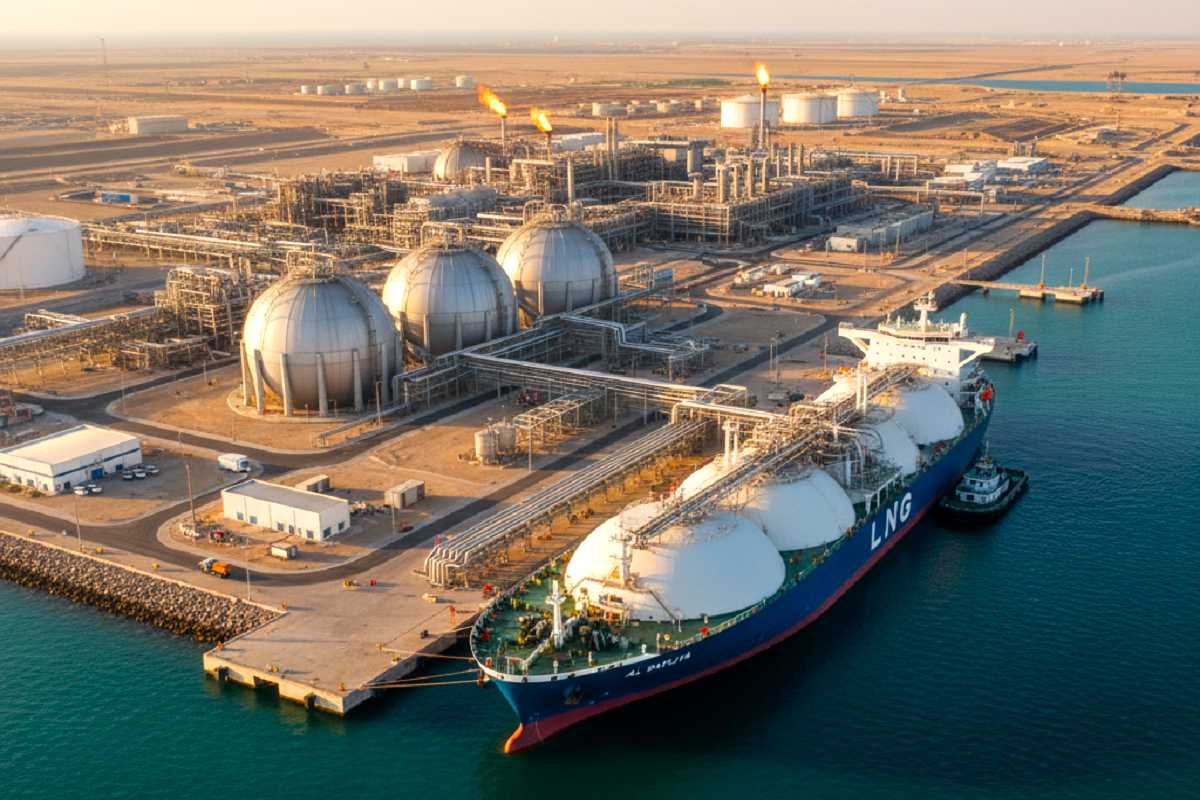DOHA, Qatar — Qatar has issued a stark warning that it may cease supplying liquefied natural gas (LNG) to the European Union (EU) unless the bloc revises its stringent sustainability regulations. The EU’s Corporate Sustainability Due Diligence Directive (CSDDD), effective from January 1, 2026, mandates that companies identify and address environmental and human rights issues in their supply chains or face penalties, including fines up to 5% of global revenues for non-compliance. Qatar’s Energy Minister Saad al-Kaabi has expressed concerns that these regulations could deter investment and make it untenable for QatarEnergy, the state-owned enterprise and major LNG supplier to Europe, to operate within the EU.
Key Points from the Article:
- Qatar’s Warning to the EU: Qatar’s Energy Minister, Saad al-Kaabi, has publicly stated that Qatar may cease supplying LNG to Europe unless the EU revises its sustainability regulations. He emphasized that the stringent requirements of the CSDDD could deter investment and make it unfeasible for QatarEnergy to operate within the EU.
- EU’s CSDDD and Its Implications: The CSDDD, implemented in 2024, mandates that companies operating in the EU identify and address human rights and environmental issues in their supply chains. Companies failing to comply could face fines up to 5% of their global revenues. Qatar argues that these regulations impose excessive burdens on non-EU companies.
- Qatar’s LNG Exports to Europe: Since Russia’s invasion of Ukraine in 2022, Qatar has supplied between 12% and 14% of Europe’s LNG, entering long-term contracts with major European energy companies like Shell, TotalEnergies, and ENI.
- Diplomatic Correspondence: In May 2025, Qatar sent letters to the Belgian government and the EU Commission, expressing concerns over the CSDDD and warning that without changes, QatarEnergy might seek alternative markets outside the EU.
- EU’s Response: The European Parliament’s legal committee has proposed easing parts of the regulation following corporate backlash. However, Qatar maintains that these adjustments do not adequately address its core concerns.
Background: Qatar’s Role in EU’s Energy Landscape
Qatar is a significant player in the global LNG market, supplying between 12% and 14% of Europe’s LNG since Russia’s invasion of Ukraine in 2022. The country has long-term contracts with major European energy companies, including Shell, TotalEnergies, and ENI. Despite these agreements, Qatar’s Energy Minister warns that the EU’s new laws could disrupt this vital energy supply.
The CSDDD requires companies operating in the EU to conduct due diligence on their supply chains, ensuring they do not contribute to human rights abuses or environmental harm. While the EU aims to promote corporate responsibility, Qatar argues that the regulations impose excessive burdens on non-EU companies and could lead to significant financial penalties.
Expert Perspectives: Concerns Over EU Regulations
Legal experts and industry analysts have raised concerns about the potential implications of the CSDDD on international trade. According to a report by Energy News Beat, the law could result in a 400% increase in compliance costs for non-EU companies, making it economically unfeasible for them to continue business in the EU. The report also highlights that the EU’s approach may inadvertently erode investor confidence and disrupt established trade relationships.
Furthermore, Qatar’s Energy Minister has criticized the EU Commission for its lack of responsiveness to Qatar’s concerns. Despite a year of outreach, Qatar has yet to receive adequate engagement from EU officials. This lack of dialogue has heightened tensions and raised questions about the EU’s commitment to fostering international partnerships in the energy sector.
Potential Impact on Qatar’s Energy Sector
The EU’s sustainability regulations could have far-reaching consequences for Qatar’s energy sector. If QatarEnergy is forced to halt LNG exports to Europe, the country may need to redirect its energy supplies to other markets, potentially in Asia or the United States. This shift could lead to increased competition in these regions and affect global LNG prices.
Moreover, Qatar’s ambitious plans to expand its LNG production capacity could be jeopardized. The North Field Expansion Project, set to increase Qatar’s LNG output from 77 million tonnes per year to 126 million tonnes per year by 2027, may face delays or scaling back if European markets become inaccessible. This project is crucial for Qatar’s economic growth and its position as a leading LNG exporter.
Diplomatic Tensions and Geopolitical Implications
The dispute between Qatar and the EU over sustainability regulations has broader geopolitical implications. Qatar’s potential withdrawal from the European energy market could strain relations between the two entities and prompt other countries to reassess their trade agreements with the EU. Additionally, the United States has expressed support for Qatar in this matter, aligning with its broader push against what it views as burdensome EU climate policies. This support could further complicate Europe’s energy landscape, potentially leading to a scenario where the continent loses access not only to Qatari and Russian LNG but also to substantial U.S. supplies.
Frequently Asked Questions
The CSDDD is a regulation that requires companies operating in the EU to identify and address human rights and environmental issues in their supply chains. Non-compliance can result in penalties, including fines up to 5% of global revenues.
Qatar argues that the CSDDD imposes excessive compliance burdens on non-EU companies, potentially leading to financial penalties and making it economically unfeasible for QatarEnergy to continue LNG exports to Europe.
If Qatar halts LNG exports to the EU, Europe may face energy shortages, increased competition in alternative markets, and higher global LNG prices. Additionally, Qatar’s plans to expand its LNG production capacity could be jeopardized.









